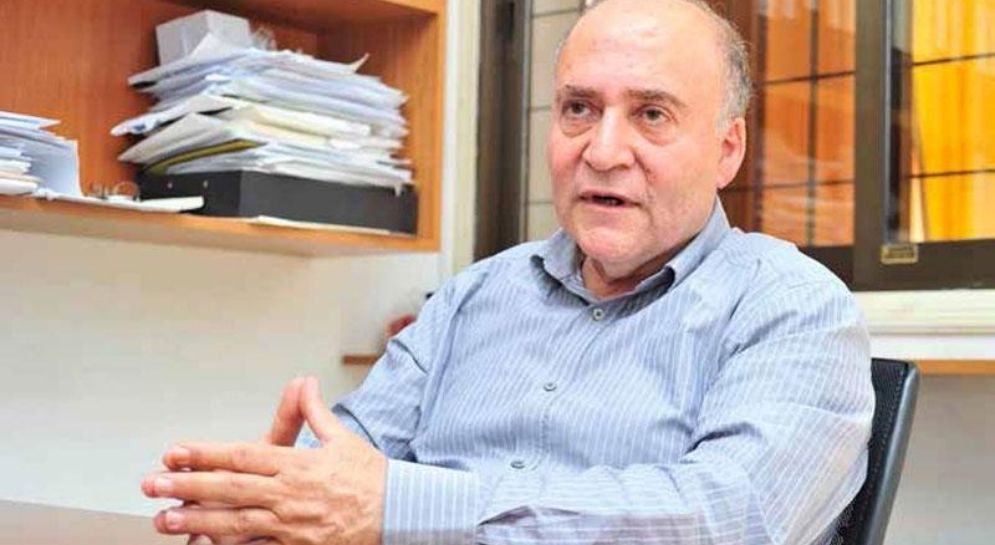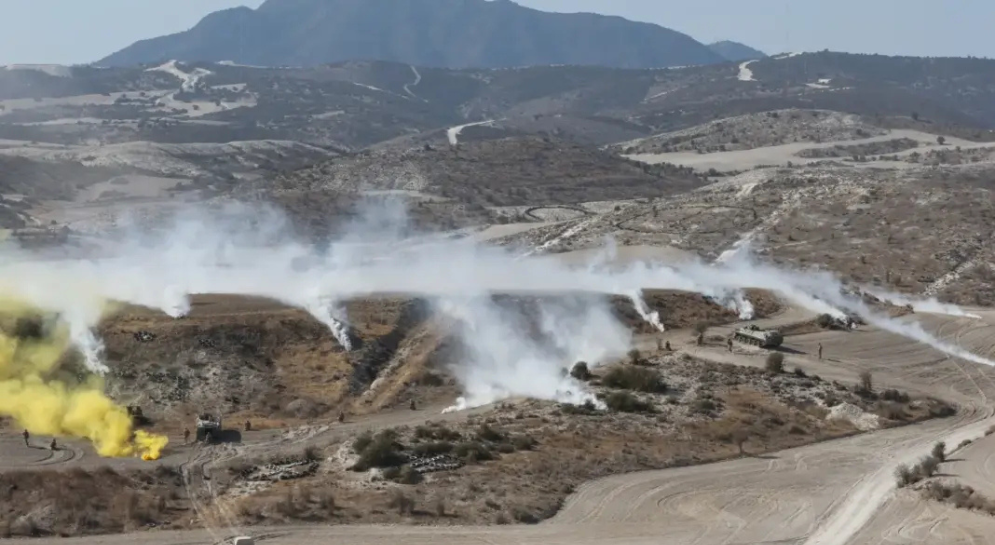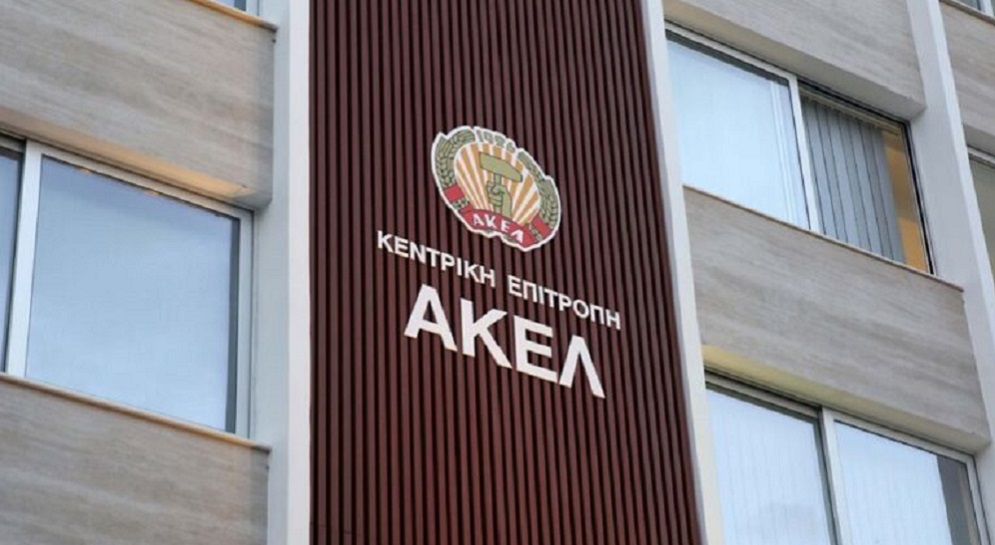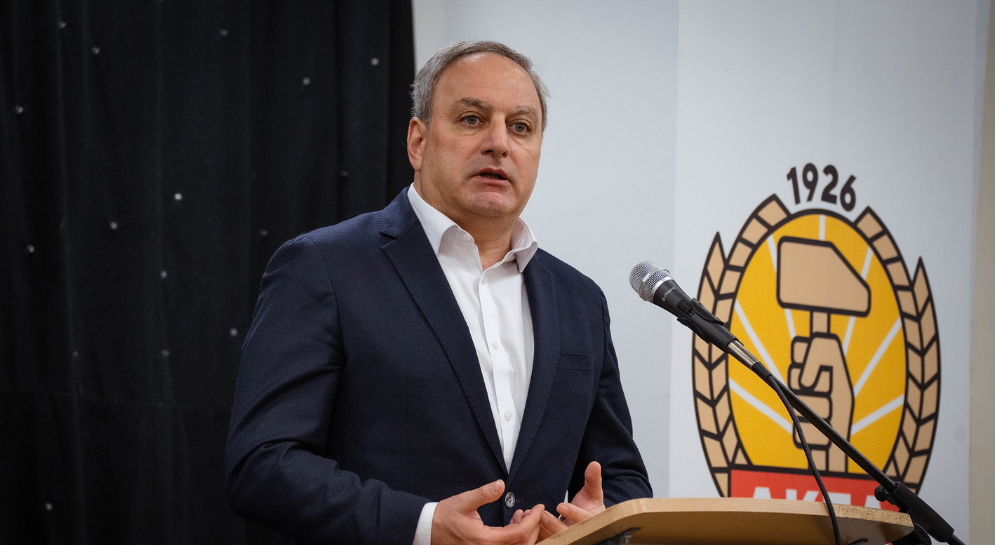
Interview with Toumazos Tsielepis, AKEL Political Bureau member, Head of the Cyprus Problem Office of the C.C. of AKEL and International Law expert
The danger of slipping into a confederal settlement is visible
“The sounding outs concerning an amendment of convergences that touch on the continuity of the Republic of Cyprus and its sovereignty are intensifying”
Sunday, 16th May 2021, “Haravgi” newspaper
Q: Certain forces spoke of a successful management of the informal five-party meeting in Geneva. Others characterised the results as disappointing and others that we are just one step away from partition. How do you assess the outcome of the informal conference on Cyprus?
TT: We did not expect any spectacular results to emerge from the informal Geneva conference, given that after Crans Montana, Turkey returned to the position of a two-state solution on the island and plotted to ensure that Mr. Tatar would become the leader of the Turkish Cypriot community. At the Geneva conference, both the Secretary General of the UN, as well as the permanent members of the UN Security Council, rejected this anachronistic demand for a two state solution. This was an expected but unquestionably a positive development, something however that doesn’t change the fact that it wasn’t possible to break the deadlock. The unacceptable status quo continues and is constantly changing to our detriment, while the real danger of a derailment and the continuation of the fait accompli is looming, which we have been witnessing since the day after the failure at Crans Montana.
Q: Under what conditions do you think the next informal conference will achieve the goal for a resumption of the talks?
TT: Let us hope that the next conference will indeed be convened, which, of course, should not have the fate of the previous one, but lead to what is at stake, which is nothing other than the resumption of substantive talks with a real prospect of a successful outcome. However, for that to happen, Turkey will have to abandon the deadlock position for a two state solution and return to where it had remained at the Crans Montana conference. I am not in a position to know if it will do so. But it will certainly not do so if the President of the Republic continues to act as he has done for the past four years and if he does not take, even belatedly, initiatives to convince that he is more than ready to put into practice what he proclaims. Namely, to continue the negotiation from the point where it had remained at Crans Montana.
Of paramount importance is the reaffirmation of the convergences recorded on the issue of political equality and effective participation of the Turkish Cypriot community in the bodies and decisions of the federal government. AKEL had submitted a comprehensive proposal to the President of the Republic since the beginning of December, which also included this issue. We received a public response to our proposal four months later, and indeed with a distortion of its content. We are convinced that if we had been listened to, this would have put real pressure on Turkey to either cooperate or to expose itself.
Q: What should the Greek Cypriot side pay attention to in order to remove the danger of slipping into looking at a solution of confederation and for the two sides to approach the “middle” solution between bizonal, bicommunal federation and two states, as it is said third parties are seeking?
TT: The risk you mentioned is real. This was quite clear in Geneva. Yes, on the one hand the Turkish demand for a two state solution was rejected, but at the same time, pressure was exerted on the Greek Cypriot side to cover some distance between the existing convergences and the Turkish position for two states, just to save the prestige of Turkey and Mr. Tatar. In reality, however, the intensified sounding outs concern the amendment of the convergences on core issues that touch on even the most sensitive issues, such as the continuation of the Republic of Cyprus and sovereignty, which we had arrived at a conclusion after decades of efforts. This is the scenario we will face in the coming months.
Our shield of protection against such machinations is certainly not to reopen convergences ourselves, but, on the contrary, to insist on them, focusing on the submission of constructive proposals only on outstanding issues. A decisive and categorical rejection of such methods is needed, because otherwise we will gradually slip into third party machinations for a conclusion on a quasi-confederal formation, which represents an unsustainable anachronism of the 19th century. It is not enough, however, to confine ourselves to what we justifiably should reject. At the same time we must take the initiative on movements, otherwise we leave room for others to determine the agenda of the discussions and direct it to undesirable directions.




